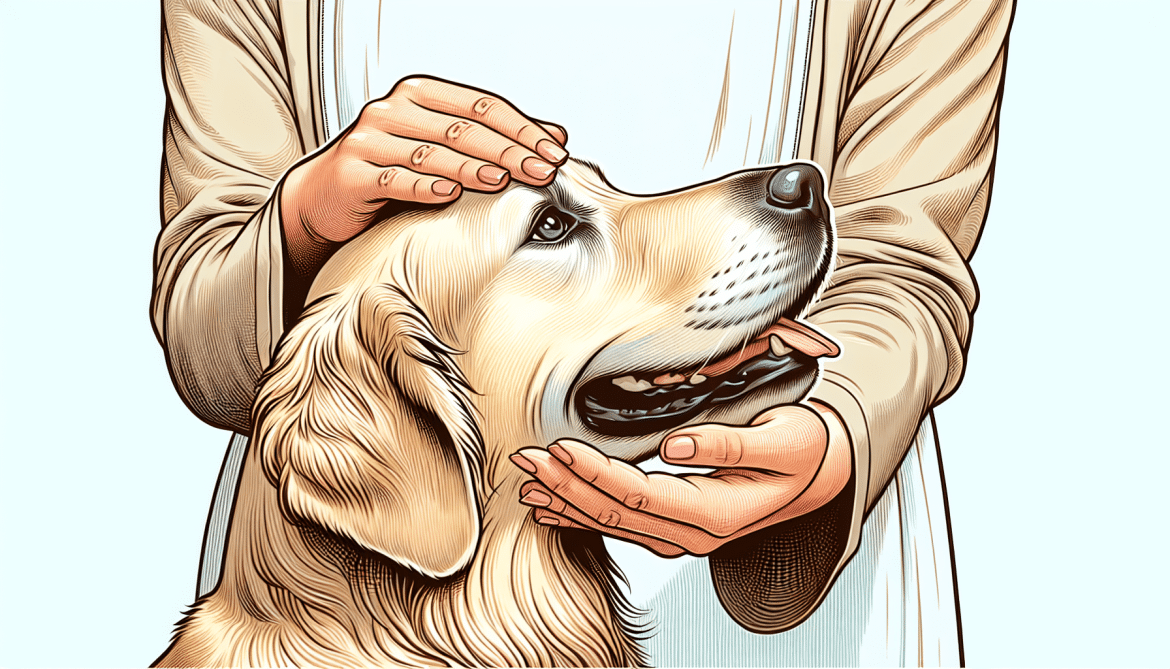In the world of dog training, you've probably heard of various methods and techniques to help your furry friend become the best-behaved pup on the block. But have you ever considered the benefits of private dog training sessions? These one-on-one sessions provide personalized attention to address your dog's specific needs and problem areas. In this article, we'll explore the average cost of private dog training sessions and why investing in this type of training can lead to positive results for both you and your canine companion.
Factors Affecting the Cost of Private Dog Training Sessions
Instructor Experience and Credentials
When considering private dog training sessions, the experience and credentials of the instructor can greatly impact the cost. Trainers with extensive experience and specialized certifications may charge higher rates. Their expertise, knowledge, and proven track record can provide you with peace of mind and confidence in their abilities. Remember, investing in a well-qualified instructor is an investment in your dog's training success.
Dog Training Methodology
Different trainers utilize various training methodologies, which can affect the cost of private sessions. Some trainers may rely on positive reinforcement techniques, while others may utilize more traditional or aversive methods. The chosen methodology can impact the effectiveness and longevity of the training, and therefore may affect the overall cost. It's crucial to choose a training approach that aligns with your values and the needs of your dog.
Location
Location plays a significant role in determining the cost of private dog training sessions. In urban areas or regions with a higher cost of living, trainers often charge more due to increased overhead expenses. On the other hand, in rural areas, the cost may be lower as trainers have lower operating costs. Additionally, the proximity of the trainer to your home can affect pricing if they need to factor in travel expenses to reach your location.
Session Duration
The length of each private dog training session can influence the cost. The longer the session, the more time and effort the trainer needs to invest. Typically, private sessions can last anywhere from 30 minutes to 2 hours. Trainers may charge an hourly rate or have set fees for specific session durations. It's essential to find a session length that allows for effective training while also fitting within your budget.
Package Deals and Discounts
Many dog trainers offer package deals or discounts when multiple sessions are purchased upfront. These packages can help reduce the overall cost per session, providing you with more value for your money. Additionally, trainers may offer discounts for specific groups, such as military personnel or rescue dog owners. Don't hesitate to inquire about any available discounts or package options to make private dog training more affordable.
Average Cost Range for Private Dog Training Sessions
Local Small Dog Training Companies
Local small dog training companies often provide personalized attention and tailored solutions. Their pricing can vary depending on the factors mentioned earlier. On average, you can expect to pay around $50 to $100 per hour for private dog training sessions through these local establishments. Keep in mind that prices may be higher or lower depending on the location and the trainer's experience.
National or Chain Dog Training Centers
National or chain dog training centers often have established reputations and standardized training programs. While they may not provide the same level of personalization as local small dog training companies, they can still offer effective training solutions. For private training sessions at these centers, costs tend to range between $75 and $150 per hour. However, prices may differ based on factors like location and the qualifications of the trainers employed.

This image is property of images.unsplash.com.
Additional Costs to Consider
Travel Expenses
In some cases, trainers may need to travel to your location for private sessions. This can incur additional costs to cover their travel expenses, such as gas or transport fees. It's important to discuss and clarify any potential travel expenses with your trainer before committing to ensure there are no surprises.
Training Equipment
Private dog training sessions may require specific training equipment tailored to your dog's needs. While some trainers provide equipment as part of their services, others may require you to purchase or rent certain items. Common training equipment may include leashes, collars, clickers, treats, or agility equipment. Factor in the cost of training equipment when considering the overall expenses of private dog training.
Board and Train Programs
Board and train programs are an option for those seeking intensive training for their dogs. In these programs, your dog stays at a trainer's facility for a period of time, typically ranging from a few weeks to several months. Board and train programs can incur substantial costs due to the extended duration and additional care provided by the trainer. Prices can range from several hundred dollars to several thousand dollars, depending on the program and location.
Ways to Minimize Training Costs
Group Training Classes
Group training classes are a cost-effective alternative to private dog training sessions. These classes typically involve multiple owners and their dogs, allowing for socialization and learning in a group environment. Group training classes often come at a fraction of the cost of individual sessions, making them an attractive option for dog owners on a budget. While the training may not be as personalized, group classes can still be highly effective for many dogs.
Online Dog Training Programs
Advancements in technology have made online dog training programs increasingly popular. These programs offer training modules and instructional videos that you can access at your convenience. Online dog training programs are often more affordable than private sessions and provide a wealth of information and guidance. While they may lack the direct feedback and personalized attention of a private trainer, online programs can be a convenient and cost-effective option for those unable to attend in-person sessions.
Self-Study and DIY Training
For dog owners who have the time, patience, and motivation, self-study and DIY training can be a viable option. There are countless books, videos, and online resources available to help you learn different training techniques and principles. While this approach may require more effort on your part, it can significantly reduce training costs. However, it's important to acknowledge that professional guidance and feedback may be necessary for more complex training issues or behavioral problems.
This image is property of images.unsplash.com.
Evaluating the Value of Private Dog Training Sessions
Personalized Attention and Tailored Solutions
One of the primary advantages of private dog training sessions is the personalized attention and tailored solutions provided. Trainers can focus solely on you and your dog, addressing specific challenges and goals. This individualized approach often leads to more effective results and a better understanding of your dog's unique needs.
Quicker and More Effective Results
Private dog training sessions often result in quicker and more effective results compared to group classes or self-study methods. With the undivided attention of a professional trainer, issues can be addressed more efficiently, and training progress can be accelerated. This can be particularly beneficial for time-sensitive training goals or behavior modification.
Building a Strong Bond with Your Dog
Private dog training sessions create an opportunity for you and your dog to develop a strong bond. The individual focus and one-on-one interaction enable a deeper connection and understanding between you and your furry friend. The strengthened bond cultivated through private sessions can have long-lasting positive effects on your dog's obedience and behavior.
Alternatives to Private Dog Training Sessions
Group Training Classes
As mentioned earlier, group training classes are an alternative to private sessions. These classes offer the benefits of socialization and interaction with other dogs and owners. Group classes can be a great option for well-behaved dogs that thrive in a group setting and owners who prefer a more affordable training option.
In-Home Training Sessions
In-home training sessions combine the benefits of personalized attention with the convenience of training in your own space. Trainers visit your home and work directly with you and your dog. This option is particularly useful for addressing specific behavioral issues that may arise in your home environment, such as leash pulling or separation anxiety.
Online Training Courses
Online training courses are an increasingly popular alternative to private dog training sessions. These courses provide comprehensive training materials and instructional videos that you can access from anywhere at any time. While they may lack the hands-on aspect of private sessions, online courses can be highly informative and convenient for busy dog owners.

This image is property of images.unsplash.com.
Questions to Ask a Dog Trainer Before Committing
Experience and Credentials
When considering a private dog trainer, it's important to inquire about their experience and credentials. Ask about their training background, certifications, and any specialized areas of expertise. A well-qualified trainer will be transparent and happy to share their qualifications.
Training Methods and Philosophies
Understanding the trainer's training methods and philosophies is crucial to ensure they align with your own values and goals. Inquire about their approach to positive reinforcement, aversive techniques, or any specific training methods you are interested in. A reputable trainer should be open and willing to discuss their methodologies.
Success Stories and Testimonials
Requesting success stories and testimonials from previous clients can provide insight into the trainer's track record. Positive feedback and testimonials can help build trust and confidence in their ability to achieve the desired training outcomes. Don't hesitate to ask for references or contact information for their past clients.
Session Duration and Frequency
Clarifying the duration and frequency of the training sessions is essential for budgeting and scheduling purposes. Discuss the expected length of each session and the recommended number of sessions needed for your dog's specific needs. Understanding the time commitment required can help you make an informed decision.
Cost and Payment Options
Lastly, be sure to discuss the cost of private dog training sessions and any available payment options. Inquire about package deals, discounts, or any additional fees that may apply. It's important to have a clear picture of the financial investment required to find the best training option for you and your dog.
Additional Tips for Successful Dog Training
Consistency and Patience
Consistency and patience are key to successful dog training. Dogs thrive on routines and clear expectations, so it's important to establish consistent rules and boundaries from the beginning. Additionally, patience is necessary as training takes time and repetition. Celebrate the small victories and remain committed to providing your dog with guidance and positive reinforcement.
Positive Reinforcement
Positive reinforcement techniques are highly effective in dog training. Rewarding desired behaviors with treats, praise, or playtime encourages your dog to repeat those behaviors. Avoid using punishment or aversive methods, as they can damage the bond between you and your dog and lead to fear or anxiety.
Socialization and Enrichment
Socialization and enrichment activities are vital components of a well-rounded training program. Exposing your dog to various environments, people, and other animals helps them develop confidence and good manners. Integrate socialization outings and mentally stimulating activities into your training routine to keep your dog engaged and happy.
Maintenance and Ongoing Training
Remember that training is an ongoing process. Once you achieve desired behaviors, it's important to reinforce and maintain them through regular practice. Consistently reviewing commands, refreshing obedience skills, and addressing new challenges as they arise will ensure long-term success in your dog's training journey.
Case Studies: Real-Life Examples of Private Dog Training Costs
Case Study 1: Urban Dog Training in New York City
In a bustling city like New York, private dog training sessions often come at a higher cost due to increased living expenses for trainers. On average, hourly rates for private sessions range between $100 and $150. However, trainers may offer package deals or discounts to make sessions more affordable for their clients.
Case Study 2: Rural Dog Training in a Small Town
In a small town with a lower cost of living, private dog training sessions are generally more budget-friendly. Rates may range between $50 and $80 per hour. Trainers in rural areas often have lower overhead costs, enabling them to offer cost-effective training options for dog owners in their communities.
Conclusion
Summing Up the Average Cost of Private Dog Training Sessions The average cost of private dog training sessions can vary depending on several factors, including instructor experience, location, session duration, and the chosen training methodology. Local small dog training companies typically charge around $50 to $100 per hour, while national or chain dog training centers may range from $75 to $150 per hour. Additional costs may include travel expenses, training equipment, or boarding programs.
Choosing the Right Training Option for You and Your Dog When selecting a training option, consider your budget, the specific needs of your dog, and your personal preferences. Private dog training sessions provide personalized attention and tailored solutions, resulting in quicker and more effective results. However, if budget constraints limit your options, group training classes, in-home sessions, or online training courses can be viable alternatives. Evaluate the value of each option based on your training goals, and don't forget to ask relevant questions before committing to a specific trainer or training program.
By investing in the appropriate training, you can establish a strong bond with your dog, ensure their well-being, and enhance their overall quality of life. Remember that dog training is a rewarding journey that requires consistency, patience, and ongoing commitment. With the right approach and the guidance of a qualified professional or a well-designed training program, you can set your dog up for a lifetime of obedience and happiness.



